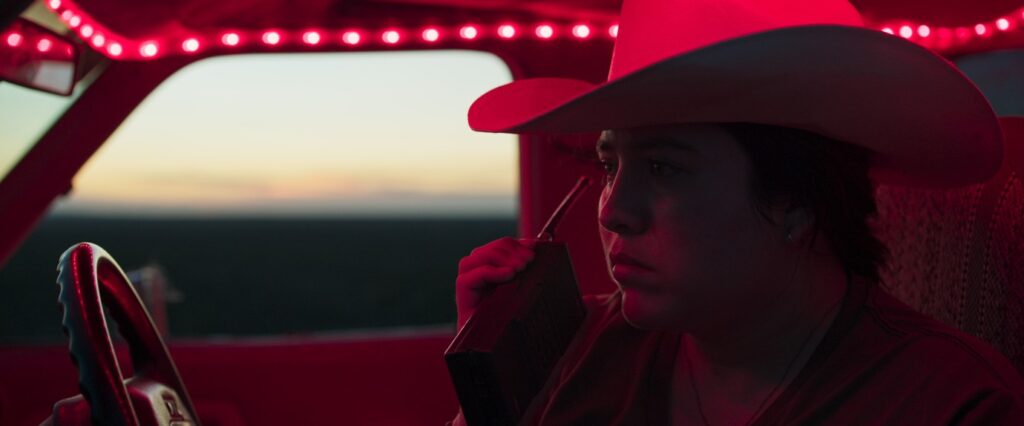Alejandra Márquez Abella studied filmmaking at Centre D’Estudis Cinematografics de Catalunya in Barcelona. Her first feature film, 2015’s “Semana Santa,” and her sophomore feature, 2018’s “Las Niñas Bien” (“The Good Girls”), premiered at the Toronto International Film Festival. Abella has written and directed for TV for more than a decade. She directed two episodes in the latest season of “Narcos: Mexico.” She is currently writing her first fiction television series, “La Liberación,” developing her next feature, “La Triste,” and her first English language feature project.
“El Norte Sobre El Vacío” is screening at the 2022 Berlin International Film Festival, which is taking place February 10-20.
W&H: Describe the film for us in your own words.
AMA: It’s a drama that plays with the elements of a Western in an attempt to dissect patriarchy, anthropocentrism, and classism.
W&H: What drew you to this story?
AMA: The possibility to speak about how family stories, by underlining a toxic identity, can be deadly traps. The construction of masculinity and how women deal with that construction as well.
W&H: What do you want people to think about after they watch the film?
AMA: I would want them to zoom out from their lives, their own ideas, and their own set of beliefs.
W&H: What was the biggest challenge in making the film?
AMA: The weather, the vegetation, the fauna. The extreme heat, without a doubt.
W&H: How did you get your film funded? Share some insights into how you got the film made.
AMA: We were funded by EFICINE, the Mexican tax incentive, and then we had to ask for a couple of loans to finish the film. We are selling it to a platform so that we can pay everything back.
W&H: What inspired you to become a filmmaker?
AMA: The idea of capturing images and sound in a very intuitive first stage, and later, the possibility of depicting mental and emotional processes. Coding images and sound to provoke emotion — and at best, thought.
W&H: What’s the best and worst advice you’ve received?
AMA: Best advice: Select an image that will link you emotionally to your film through the whole process. It may be in the film or not. I’ve always included it.
The worst: Be yourself.
W&H: What advice do you have for other women directors?
AMA: Diversify your crews. Don’t be afraid to talk about what you know and want. Don’t be afraid of focusing on the female experience even though the industry keeps pushing our themes to the side.
W&H: Name your favorite woman-directed film and why.
AMA: Lucrecia Martel’s “La niña santa” (“The Holy Girl”). It is simple and very profound.
W&H: How are you adjusting to life during the COVID-19 pandemic? Are you keeping creative, and if so, how?
AMA: I’ve been writing and shooting. It’s been good for me to stay at home and focus on projects. Shooting has been harder with all the testing and the protocols, yet doable, so I’m thankful.
W&H: The film industry has a long history of underrepresenting people of color onscreen and behind the scenes and reinforcing — and creating — negative stereotypes. What actions do you think need to be taken to make it more inclusive?
AMA: We should revert these stereotypes by shooting and writing from the perspective and experience of the underrepresented. I believe a film can put its subtext over its text — through the cinematic elements, one can deny or underline any trait. Our camera can have an ethical position. We should avoid epidermal solutions, checking boxes to make everyone shallowly happy.







